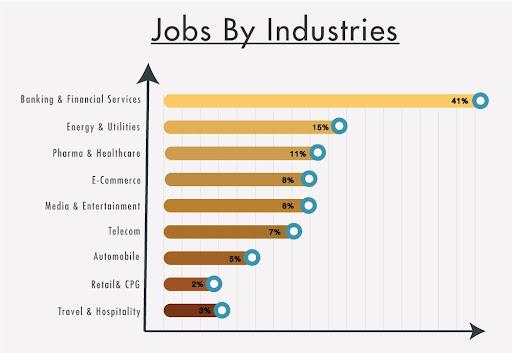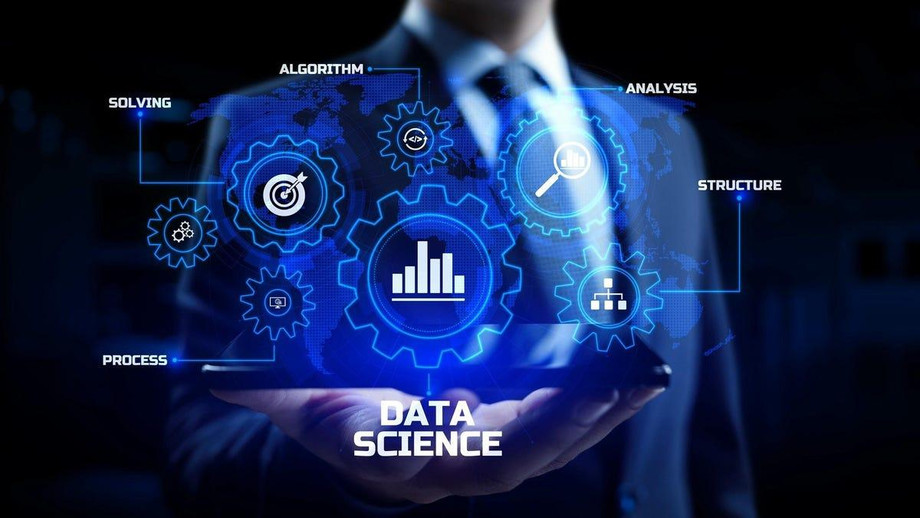Although technology has been around for a while, it has just recently begun to evolve and multiply rapidly at a remarkable rate. The frequency with which new items and applications are released has boosted the general public's consumption of them. This use, virtually universally, has caused data to flood servers with unsuitable capacities. And in order to provide valuable business results, this accumulated data needs to be sorted, formatted, and evaluated. Data science does just that.
Describe data science.
Sorting, processing, and extracting data from various sources, then using statistics, algorithms, and analysis to turn the data into actionable insights, is known as data science.
By utilising the vast amounts of data gathering dust on the servers since its inception in the 1960s, data science has assisted businessmen in realising the potential of data in expanding businesses. Sorting, structuring, analysing, and offering improvements to business tactics and strategies have all been grouped under the heading "Data Scientist" thanks to data science.
A data scientist examines this information, develops business acumen, and provides opinions and suggestions regarding how well a business or organisation is doing. At the same time, he or she uses the wealth of data at their disposal to advance fields like cybersecurity, machine learning, and artificial intelligence.
Why did technology change?
The founders of data science are credited as being Leo Breiman, William Cleveland, and John Tukey. They realised that to use the information and draw useful conclusions from it, a new branch of research called data science needed to be created by combining statistics, data, and analysis. While the rest of the world simply saw insignificant numbers and algorithms, statisticians in the past thought that data could be transformed into knowledge and information.
Data science has advanced significantly from the days of classical statistics, numbers, and formulas. The development of data science has highlighted its numerous advantages for moving forward into the future, including artificial intelligence technology and intelligent systems to make life easier and more satisfying.
Why should you care about data science?
Since its development, data science has established itself in practically every industry, including finance, healthcare, transportation, and e-commerce. Because of this, it is essential that we comprehend what data science is and how it works.
Here are some examples of how data science has significantly altered the following industries:
Banking: Keeping track of unusual transactions, maintaining customer information, identifying a customer's investment preferences to suggest plans and policies that are suitable for them, detecting account and card fraud, and analysing bank performance to help owners identify areas that need improvement in order to offer better customer service.
Finance: Predictive analysis to carefully examine facts and data for advantageous outcomes, such as forecasting the stock market's climb towards green or drop in share price. Predictive modelling to forecast future events and the likelihood of outcomes or results.
Producing & Manufacturing: Through automation, machine learning algorithms have improved the productivity of manufacturing and producing systems and machinery. Manufacturers can improve their products to increase sales by understanding the needs and expectations of their customers through an examination of consumer feedback.
To adapt and arrange transportation timetables and create a ticket price structure, information from trip records is acquired to identify which days or times of the week passengers prefer to travel. Data can also be used to determine when a product should be delivered.A survey once showed that most customers prefer deliveries between 10 AM to 5 PM.
E-commerce: Companies keep a user's buying and selling habits as well as their preferences in order to gain insightful information. By examining a customer's search habits, current trends, user behaviour, and a few other variables to improve the digital experience, data science aids in business success.
Data scientists are in high demand across all industries, despite the fact that data science is widely used. This is because there is a visible shortage of people with the necessary qualifications to analyse this data.
How is data science used?
Data science has altered the way that firms see their data in a competitive drive to the top. Customer feedback is thought to be of paramount importance for a firm to have a major impression and compete with other businesses. Recognizing customer wants and expectations and how to meet them faster and better than your rivals is the only way to outperform the competition.
Today, data science is used in industries including banking and finance, healthcare, transportation, e-commerce, and other well-known industries like the apparel and food sectors. The number of open positions in each sector is depicted in the graph below.

The graph displays the availability of Data Science practitioners across a variety of industries, such as Banking & Financial Services, Energy & Utilities, Pharma & Healthcare, E-commerce, Media & Entertainment, Telecom, Automobile, Retail & CPG, and Travel & Hospitality, in descending order of demand.
It would only be reasonable to think that the demand for data scientists, data engineers, data analysts, business analysts, database administrators, data architects, machine learning engineers, deep learning engineers, etc., would increase as Big Data expands at an exponential rate.

